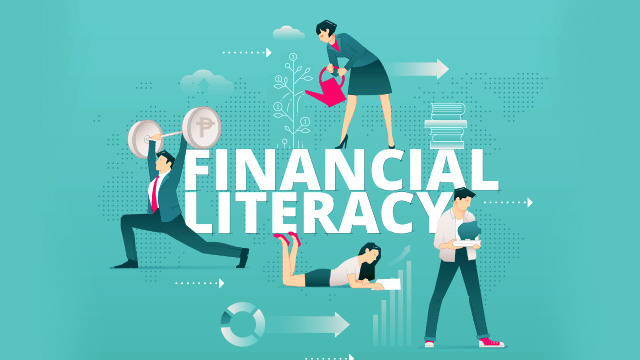Legendary investor Warren Buffett used to say that the greatest risk in investing is when you don’t know what you are doing. Very often, many people invest in financial products that they don’t understand. They act based on their emotions without the appropriate investment information. They rely on recommendations made by friends or relatives rather than their own independent decisions. Because of lack of financial knowledge, many are not able to plan their own personal finances. There are also people who have lost their hard-earned savings to financial scams, which are not uncommon stories nowadays.
Learning about financial planning and investments is a worthy goal everyone must achieve. When you choose to learn and improve your financial knowledge, you will be more confident when you make financial decisions in life. You will have a more tolerant attitude towards risks when evaluating potential returns of an investment. And you will be more engaged in taking charge of your finances as you become more knowledgeable about investments.
There is no doubt that knowledge is power, but how do you start the discipline of learning about personal finance? What are the options available? When should you study on your own and when should you ask for help from other people?
Here are the five painless steps everyone must know to achieve personal financial literacy:
1. Develop a growth mindset
There are people who believe that they have certain traits or habits that cannot be changed. They have preconceived ideas and attitude towards money that they have probably learned from family tradition or personal experience. For example, you may say that you have always had problems with mathematics, so you easily get intimidated whenever you hear about investments.
Or you may say that you never thought about investing your savings or accumulating wealth because you grew up believing that money is the root of all evil. Having a growth mindset is having the ability to listen without bias. By changing your money mindset, you will learn to treat every opportunity to improve your financial knowledge as a personal privilege to advance yourself.
2. Learn at your own pace
There is always the temptation to ask someone else to take responsibility for you when you are faced with the task of managing your savings or deciding where to put your money. But you need to realize that to be really in charge of your personal finances, you must take a leading role by learning the process. If you don’t have a business background, you can start slowly by understanding the investment terminologies and methodologies at your own pace and timing until you are able to overcome all the barriers.
There are various ways to educate yourself about financial planning. You can search on the internet and read articles about saving and investing. You can also ask for recommended books on personal finance from your favorite bookstore. You can also attend seminars and trainings by reputable financial planners. There is a wide selection of seminars in the market that you can choose from depending on the level of your learning progress. You can attend short talks that last for a day to trainings that last a few weeks.
3. Practice what you have learned
Learning is better absorbed when you apply it immediately to your personal situation. Once you become comfortable with financial principles and techniques, you can start developing your own financial plan. For example, you can begin working on your personal investment plan after you learn how to identify your goals and how much you should achieve by the time you reach a certain age. As you work, you will need to research more about which type of investment instrument will help you the best in reaching your goal.
You don’t need to wait to learn everything before you start doing something. You can start implementing what you have learned so far and put it into practice as you learn more. The more you experience your learning, the more knowledge you will gain.
4. Make your own investment decision
It is helpful when you consult financial professionals for advice, especially when you encounter a complicated financial issue, but in the end, it is always you who should make the final decision. When you consult, make sure that you listen to what they have to say and learn from it before making a choice. People who are more experienced and knowledgeable than you serve as your sounding board when you need them for guidance.
Choose the right people you want to seek advice from. Look for people who are objective enough to tell you the right thing to do regardless of the market situation. Advisors ideally must be independent and can provide you unbiased recommendations.
5. Help others take control of their finances
Learning how you can further improve your financial situation should be a continuing personal activity even when you have attained a certain level of financial independence. One way to master your skills is to share your knowledge with other people. You can help your friends, colleagues or relatives take charge of their financial future by guiding them. You will learn more by listening to other people’s financial situation.
Some people practice financial planning as a secondary profession by becoming a Registered Financial Planner (RFP). As an RFP, you will know how to make a proper personal financial plan that details the roadmap on how and when you can become financially free. Apart from the recognition, getting certified and being part of a community of professional financial planners can help you reach out to more people who may need your services, as well as opportunities for personal growth.




